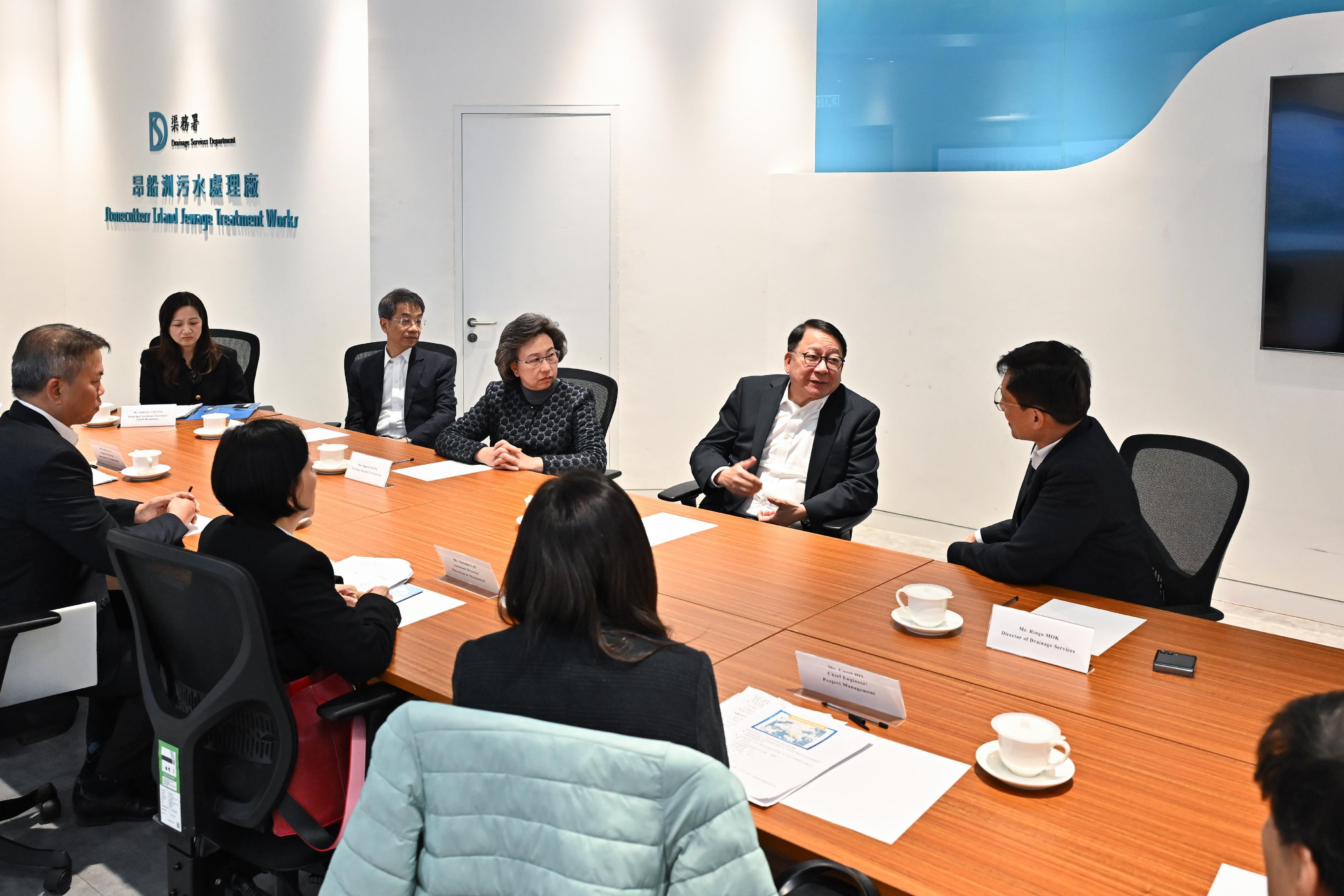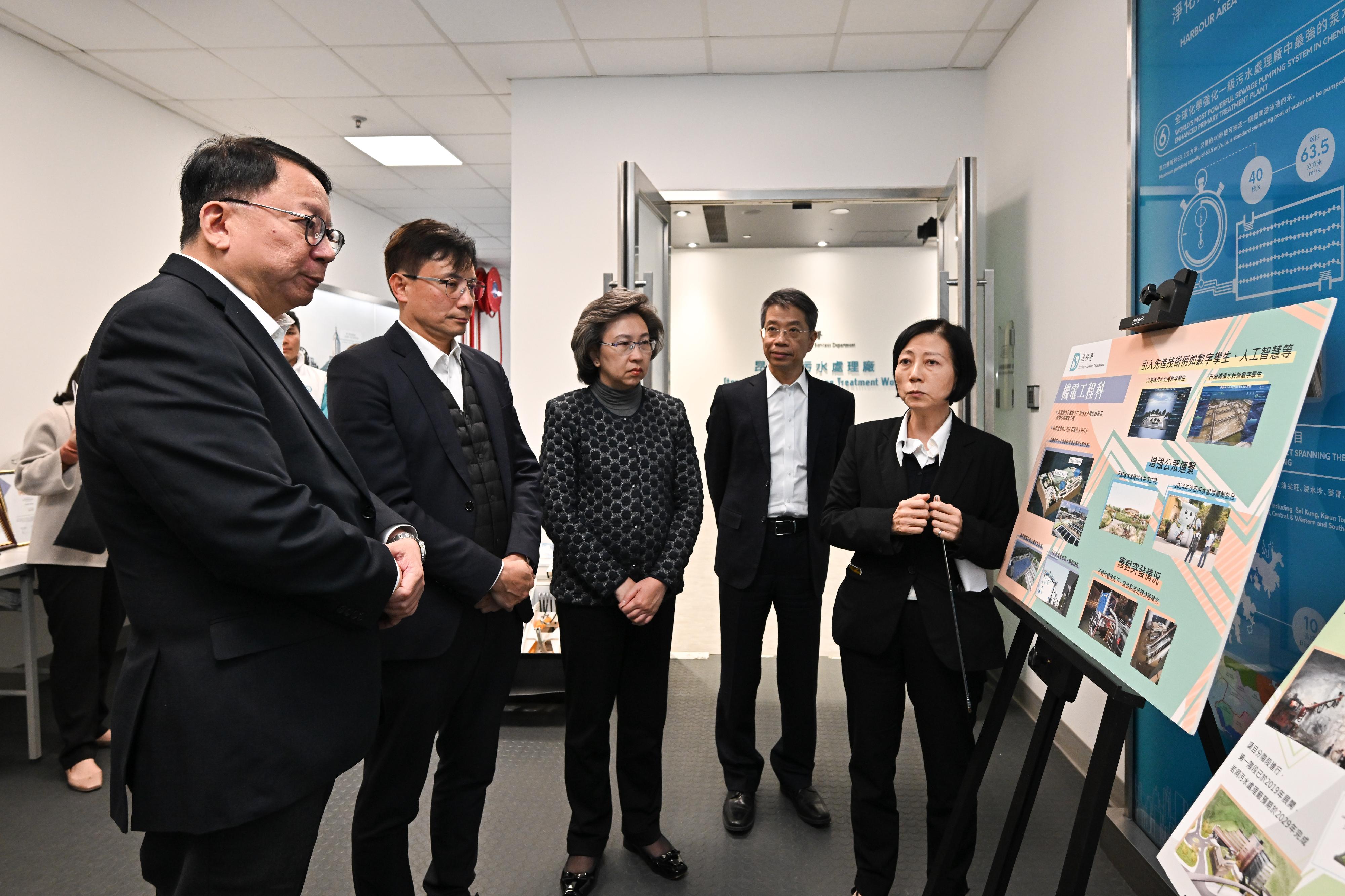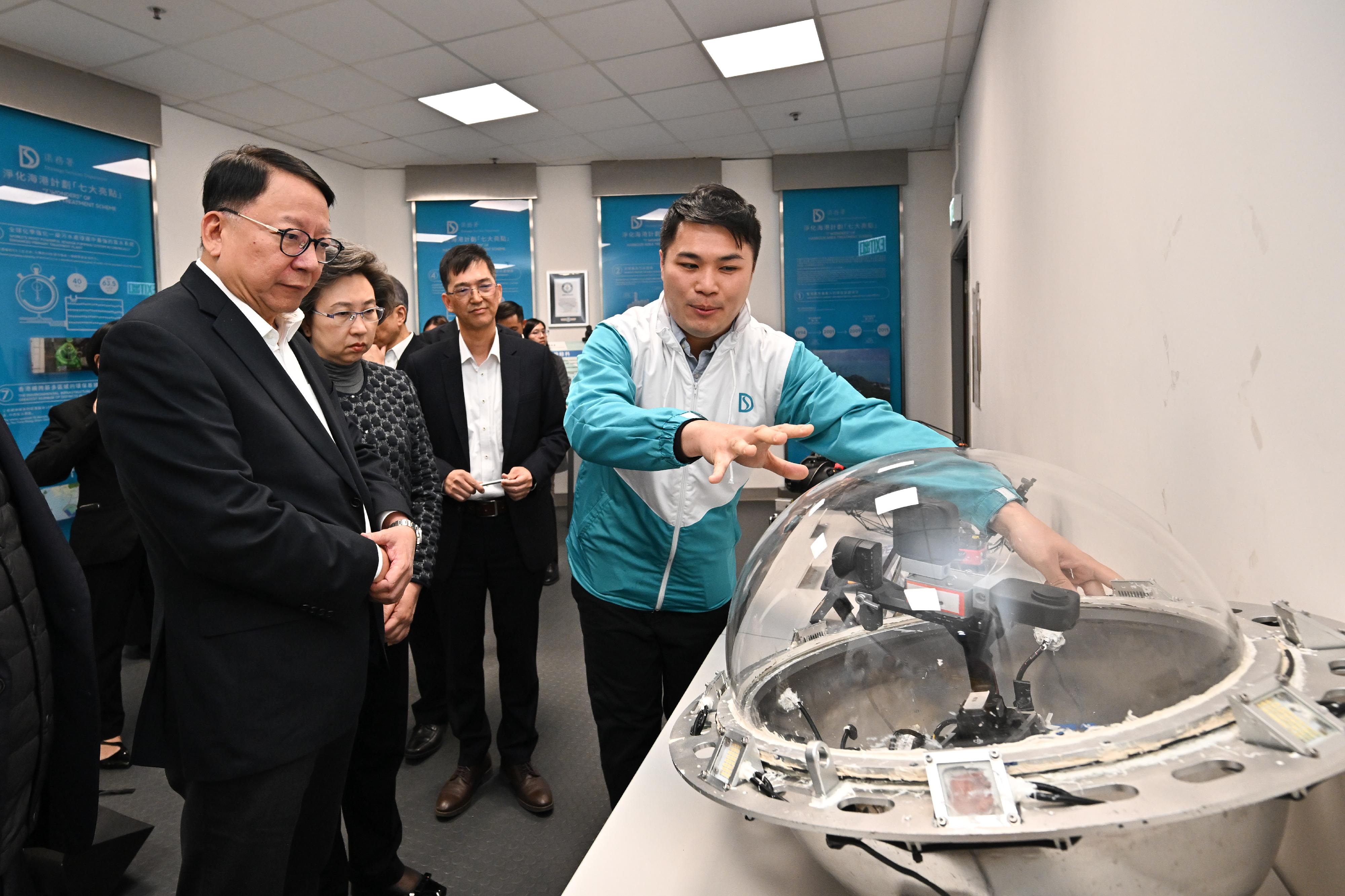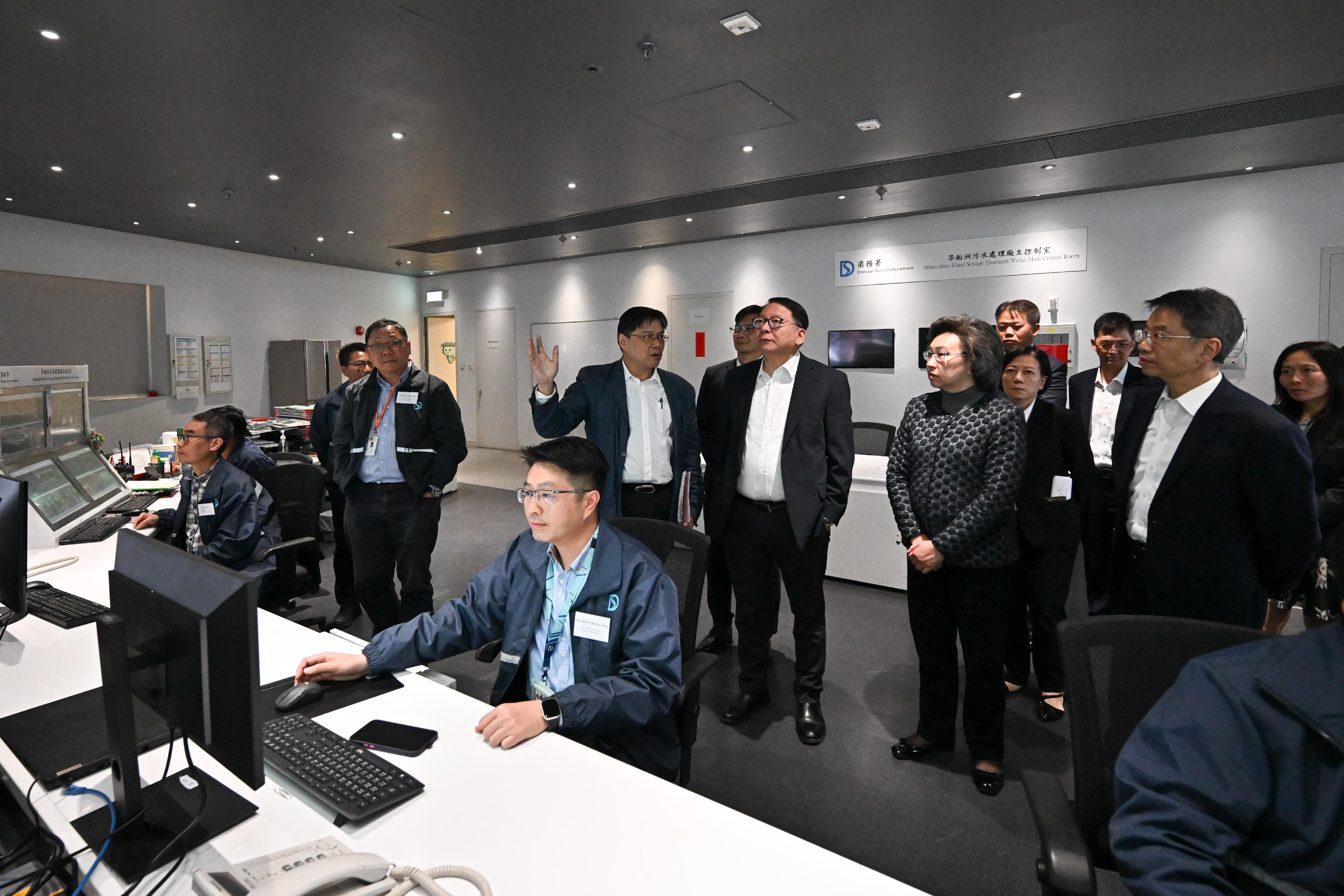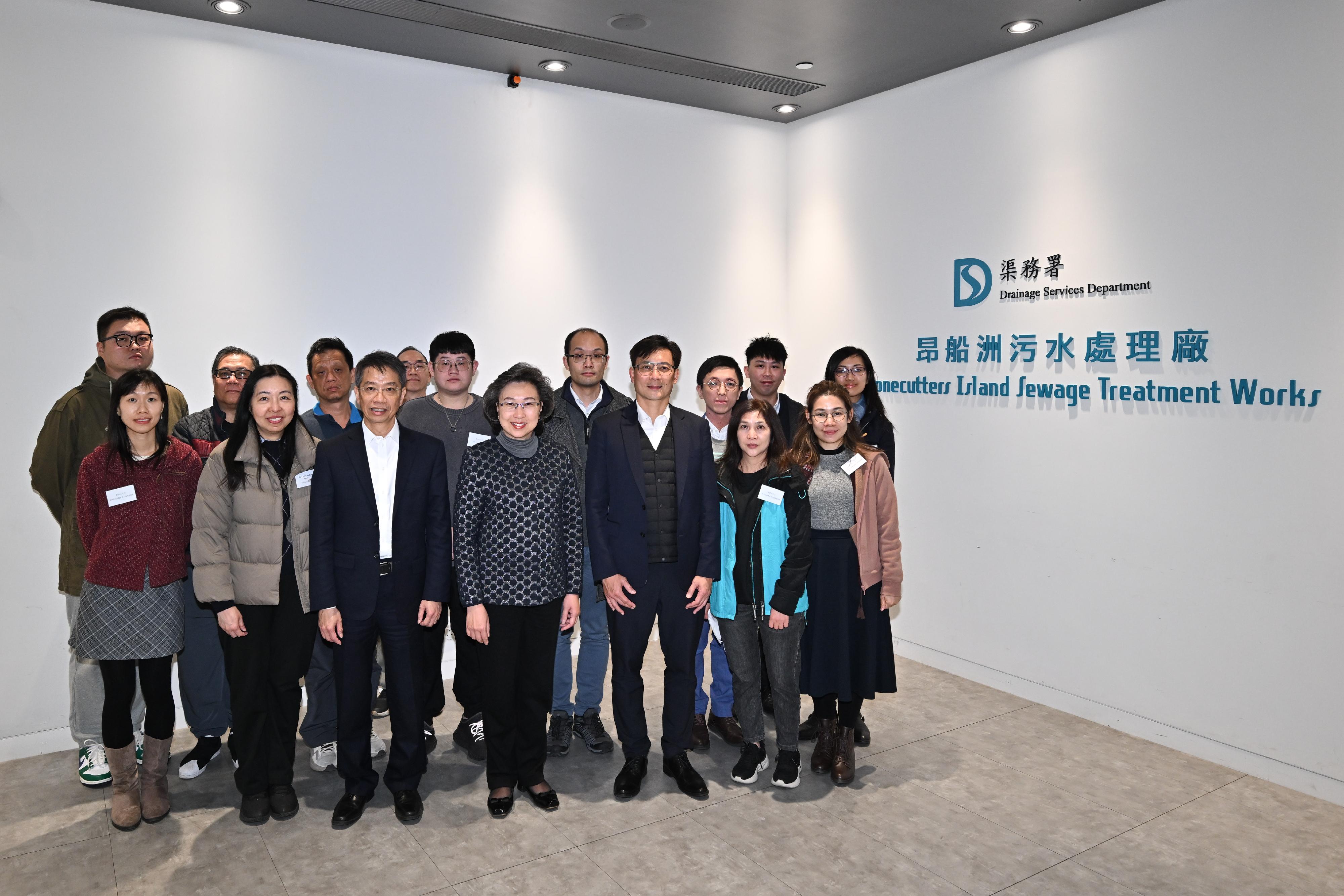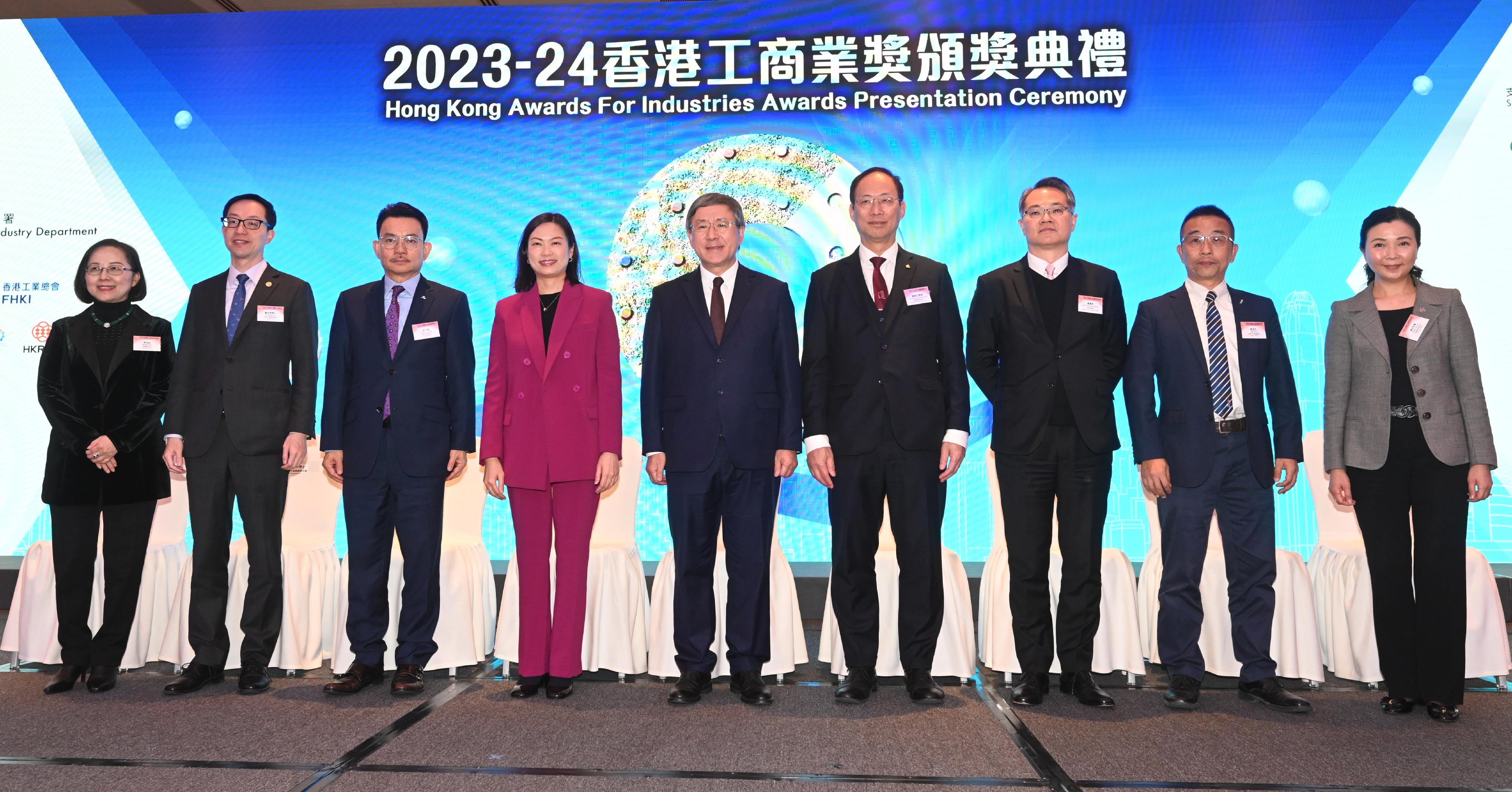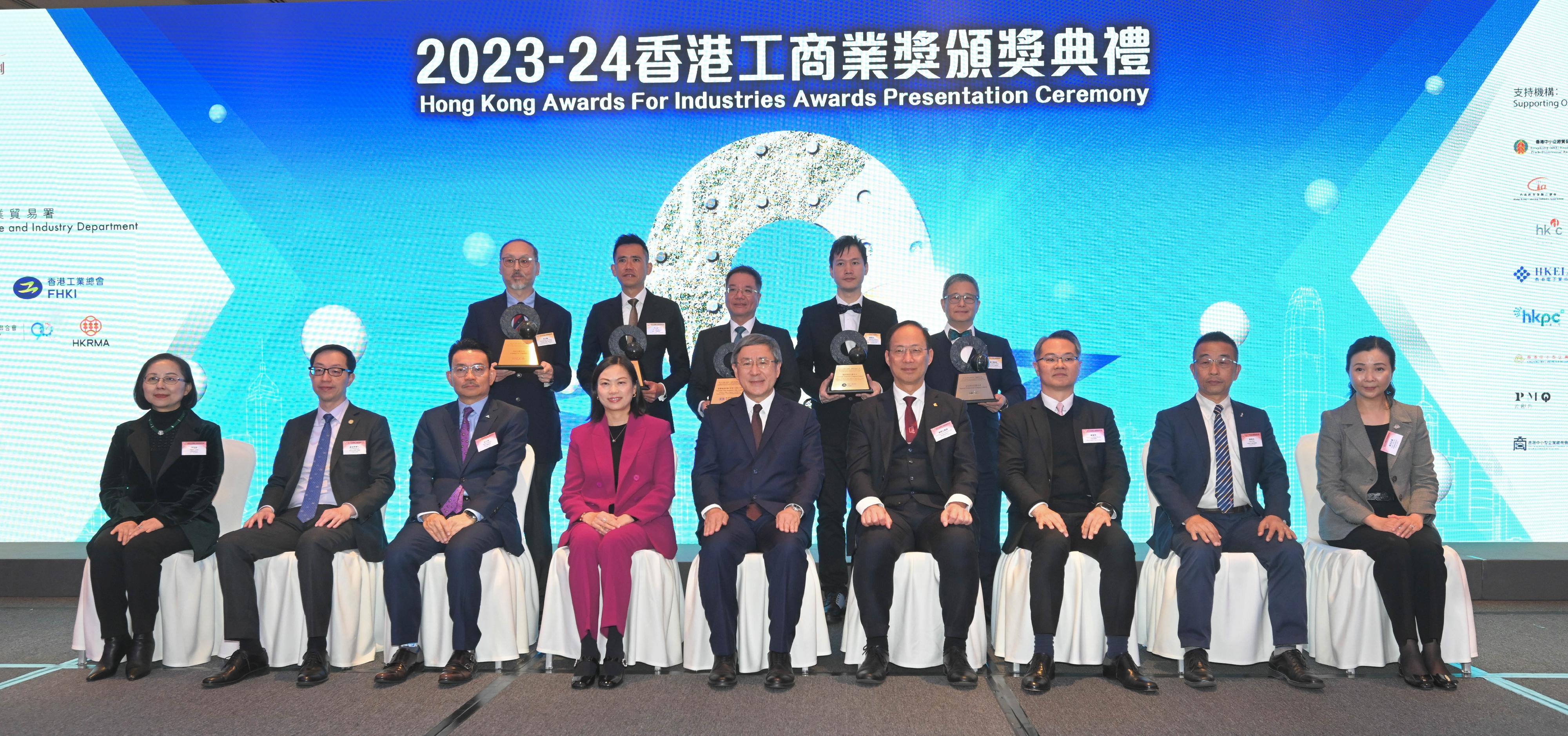CS and SCS visit Drainage Services Department (with photos)
The Chief Secretary for Administration, Mr Chan Kwok-ki, and the Secretary for the Civil Service, Mrs Ingrid Yeung, visited the Drainage Services Department (DSD) this afternoon (December 16) to learn more about the department’s daily operations and the latest progress on its drainage improvement works. They also toured the Stonecutters Island Sewage Treatment Works (SCISTW), which is the largest of its type in Hong Kong. The Permanent Secretary for the Civil Service, Mr Clement Leung, also joined the visit.
Mr Chan and other officials first met with the Director of Drainage Services, Mr Ringo Mok, together with the directorate staff and were briefed on the department’s progress on the drainage improvement works in Hong Kong. The DSD is taking forward expeditiously seven drainage improvement works projects, covering Wong Tai Sin, Hong Kong Island East and other areas hit by severe floods in the past. Apart from adopting parallel tendering, the department also strives to shorten the duration of engineering design, procurement and construction for commencing and completing the improvement works as soon as possible to enhance the flood prevention ability of the districts concerned.
To cope with the more frequent extreme weather conditions in recent years, the DSD is dedicated to strengthening the operation of the Emergency Control Centre and the emergency response teams, and applying innovative technologies to enhance work safety and efficacy. For instance, the deployment of a desilting robot, “River Ranger”, for emergency clearance works, with a view to allowing the community to resume normal operation within the shortest period of time, and an underground drainage inspection robot, “Tumbler Inspection Ball”, and crawler-type survey robots to conduct surveying works to determine the status of underground pipelines. A “Tumbler Inspection Ball” robot can provide 360-degree all-round stable viewing, and then combine the 360-degree real-life pictures with artificial intelligence, which helps officers check the pipeline status accurately. In addition, the DSD has made advance arrangements by completing the “Strategic Planning Study on Flood Management Against Sea Level Rise and Extreme Rainfall” soon and formulating new and comprehensive territory-wide flood management strategies.
Mr Chan said that in the face of various challenges brought about by climate change, the Government is dedicated to implementing a pre-emptive strategic approach and stepping up preventive and contingency measures on various fronts to protect the lives and property of people. He stressed that all government departments are working at full steam to scale up their handling capabilities to minimise as far as possible the impact of inclement and even extreme weather conditions on the community, while the DSD plays a vital role in flood prevention and clearing blockages in drainage systems.
Mr Chan advised the DSD to get prepared for the future rainy and tropical cyclone season by deploying adequate manpower and resources, stepping up inspection of its drainage facilities, carrying out timely desilting work, ensuring the clearance of drainage channels across the territory and disseminating information to the public properly. He and Mrs Yeung encouraged DSD colleagues to stand fast at their posts, rise to the challenges ahead, maintain close communication with other relevant departments and organisations, and demonstrate professionalism and team spirit in order to make good preparations for inclement and even extreme weather conditions.
Mr Chan and other officials then visited the SCISTW Main Pumping Station and were briefed by the staff on the DSD’s work in taking forward the sewage treatment initiatives such as the Harbour Area Treatment Scheme. They also met with duty officers at the Main Control Room of the SCISTW to learn more about the department’s work in monitoring various sewage treatment processes around the clock as well as its contingency strategies in case of inclement and even extreme weather conditions.
They then viewed the SCISTW from a green roof, where they were briefed on the sewage treatment facilities as well as the operation of facilities such as Clean Harbour 2, an advanced vessel for the transportation of sludge from the SCISTW to Tuen Mun for turning waste into energy. Meanwhile, they also gained a better understanding of the department’s progress in promoting the use of renewable energy at the SCISTW, including the installation of thin-film photovoltaic systems, which is expected to be completed next year and will be the largest of its kind in Hong Kong.
Mr Chan hoped that the DSD would continue to break new ground while upholding fundamental principles, and spare no effort to provide world-class wastewater and stormwater drainage services, and at the same time help to build a sustainable and better future for Hong Kong by utilising innovative technology and renewable energy.
Mrs Yeung also met with staff representatives from various grades to exchange views on issues of concern.


